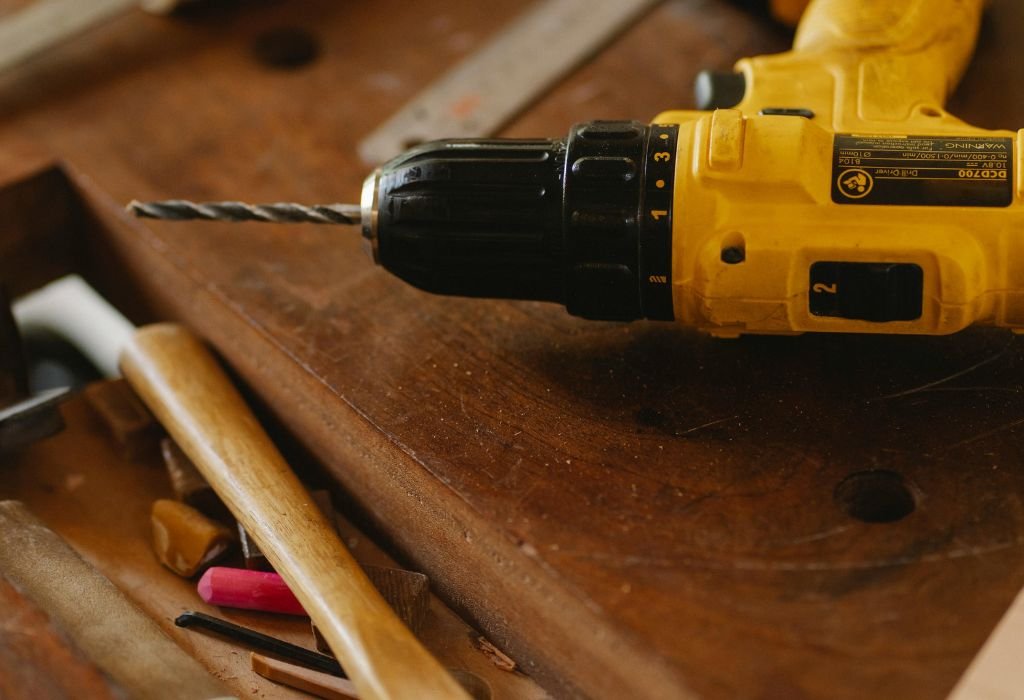Walking down the tool aisle, many buyers pause and ask themselves what is better brushed or brushless cordless drills.
The choice often feels confusing because both types of drills claim to offer power, performance, and reliability.
Making the wrong decision can lead to wasted money, slower projects, and tools that wear out too quickly.
Curiosity grows as buyers wonder if the extra cost of brushless technology truly delivers better results.
Demand for power tools continues to rise, with the global market expected to reach $40.9 billion by 2027 (Grand View Research).
This growth highlights why understanding motor types is more important than ever for both professionals and homeowners.
Research shows brushless motors can be up to 20% more efficient than brushed motors (Woodsmith).
That efficiency means longer battery runtime, less heat, and more torque during demanding tasks.
For professionals who use drills daily, these advantages can translate into hours of saved work every week.
At the same time, brushed drills remain affordable and simple, making them attractive to budget-conscious buyers.
Homeowners who only drill occasionally often find brushed models reliable enough for their basic needs.
The key is not just understanding how each motor works but recognizing which option matches the user’s lifestyle.
This article will compare brushed and brushless cordless drills in depth to reveal their strengths and weaknesses.
By the end, readers will know exactly which drill type provides the best balance of performance, cost, and value today.
Understanding Brushed vs Brushless Cordless Drills

Brushed motors rely on carbon brushes and a commutator to deliver electricity to the spinning armature. This design is simple, proven, and affordable but creates friction that leads to wear.
Brushless motors use electronic circuitry and sensors to transfer power without physical contact. This eliminates friction, sparks, and unnecessary energy loss, making them more efficient and durable.
The question of what is better brushed or brushless cordless drills often starts with design. One type is built for cost and simplicity, while the other is built for efficiency and precision.
Q: What is a brushed motor?
A: A traditional motor using carbon brushes to deliver power with physical contact.
Q: What is a brushless motor?
A: A modern motor controlled electronically without brushes for improved performance.
Q: How do they differ in energy use?
A: Brushed wastes energy as heat, while brushless delivers power more efficiently.
Q: Which one sparks during use?
A: Brushed motors produce sparks from friction, while brushless motors run spark-free.
Q: What is better for long-term performance?
A: Brushless motors last longer because fewer parts wear down.
Advantages of Brushless Cordless Drills
Brushless cordless drills deliver more power and efficiency in a smaller, lighter package. They optimize energy use, giving longer battery runtime on every charge.
By eliminating brushes, these drills reduce heat, noise, and vibration, improving both comfort and durability. They also adapt power delivery intelligently, giving extra torque only when needed.
Professionals appreciate that brushless drills often handle heavy-duty tasks with less overheating. Homeowners enjoy that the battery lasts noticeably longer during DIY projects.
Q: Why are brushless drills more efficient?
A: They remove friction from brushes, conserving more energy for work.
Q: Do brushless drills extend battery life?
A: Yes, smarter power management provides longer runtime.
Q: Are brushless drills lighter?
A: Typically yes, because fewer moving parts allow compact designs.
Q: Do they generate less heat?
A: Yes, electronic control reduces heat buildup during use.
Q: Are they more durable?
A: Yes, fewer wear parts mean they last longer with less maintenance.
Advantages of Brushed Cordless Drills

Brushed cordless drills remain popular for one main reason: affordability. They cost less upfront, making them attractive for budget-conscious buyers.
Their design is simpler, which makes them easier to repair and maintain. Replacing brushes is inexpensive compared to replacing advanced electronics.
For homeowners who use drills only occasionally, brushed motors provide more than enough performance. They handle basic tasks like hanging shelves or assembling furniture reliably.
Q: Are brushed drills cheaper?
A: Yes, they are generally much more affordable.
Q: Do brushed drills require more maintenance?
A: Yes, brushes wear down and need replacement over time.
Q: Are they good for light household work?
A: Yes, they perform well for basic DIY tasks.
Q: Can they handle professional use?
A: Yes, but they wear faster under heavy use compared to brushless.
Q: Are brushed drills easier to repair?
A: Yes, replacing brushes is straightforward and inexpensive.
Key Considerations When Choosing Your Drill
The real answer to what is better brushed or brushless cordless drills depends on personal needs. Buyers should consider frequency of use, type of projects, and long-term value.
Budget remains an important factor because brushless drills often cost more upfront. However, long-term savings appear when fewer replacements and longer runtimes offset the price difference.
Professionals working daily on job sites benefit from brushless efficiency and durability. Occasional DIYers who drill only a few times a year may find brushed drills perfectly adequate.
Q: Should budget decide the choice?
A: Often yes—brushed suits smaller budgets while brushless is a long-term investment.
Q: Is brushless worth it for professionals?
A: Absolutely, the efficiency and torque save time and money.
Q: Are brushed drills reliable enough for beginners?
A: Yes, they are cost-effective and simple to use.
Q: Does battery technology matter in the choice?
A: Yes, brushless drills often pair with advanced lithium-ion packs for smarter power use.
Q: What is better for heavy-duty work?
A: Brushless drills handle demanding tasks with ease.
Current Market Trends and Future Outlook
The price gap between brushed and brushless drills has narrowed significantly in the past decade. As manufacturing improves, brushless models are no longer limited to premium brands.
DIY enthusiasts increasingly choose brushless drills because they see more value in efficiency and runtime. Many brands now offer brushless options in entry-level lines to attract first-time buyers.
The future of cordless drills points toward smarter tools with integrated sensors and connectivity. Features like torque adjustment, overload protection, and tool-battery communication are becoming standard.
Q: Are brushless drills getting cheaper?
A: Yes, prices have dropped as production scales.
Q: Is adoption growing among homeowners?
A: Yes, more DIYers now invest in brushless tools.
Q: What smart features are coming to drills?
A: Expect torque sensors, overload protection, and app-linked batteries.
Q: Will brushed drills disappear?
A: Not completely—they still serve budget buyers.
Q: Is brushless the industry future?
A: Yes, efficiency and durability make brushless the standard.
Conclusion
Brushed drills remain a dependable, affordable choice for light household work. Brushless drills, however, deliver unmatched efficiency, runtime, and longevity for professionals and frequent users.
When asking what is better brushed or brushless cordless drills, the answer depends on usage. For regular projects and heavy work, brushless is the smart long-term choice, while brushed works fine for budget or occasional drilling needs.
The final advice is simple: evaluate how often you use a drill, weigh upfront cost against lifetime value, and choose accordingly. For those who depend on tools daily, upgrading to brushless ensures better performance and fewer frustrations in the years ahead.

I’m John F. Nicholas, the founder, lead writer, and drill enthusiast behind 101drill.com. With years of hands-on experience in power tools and DIY projects, I created this platform to share practical knowledge, expert tips, and real-world insights to help others master the art of drilling.
